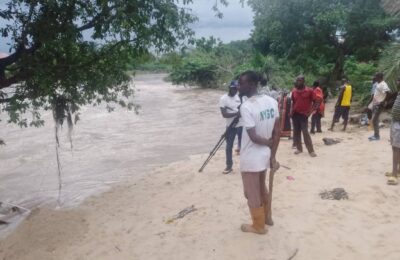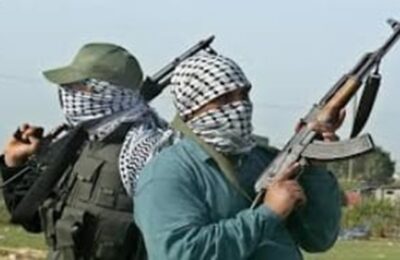As preparations for the national conference reach a climax, Dare Adekanmbi periscopes the renewed clamour of the Yoruba-speaking areas in Kwara and Kogi states for a re-union with their kith and kin in the South-West geo-political zone, if a new state for them is not forthcoming.
Roots play inter alia the following roles for a tree: they go deeper and deeper into the soil in search of water which they extract and pass over to the tree in the digestible form for its subsistence. Roots store water so that the tree may have something to fall back on during a harsh weather.
They also keep the tree in one spot so as to guarantee its growth, firmness and stability.
“This arrangement allows the tree to receive the rays of the sun for the process of photosynthesis which is vital for its colour identity. By stationing the tree’s geographical sub-group, its climatic, ecological specificity as well as its medico-spiritual potentials and idiosyncrasies. Without roots therefore, nobody can talk of a tree. Hardly also can we talk of a man without his roots.
These were the words of Professor Benedict Ibitokun, in his inaugural titled Literature and the Quest for the Roots and delivered at the Obafemi Awolowo University, Ile Ife, on August 8, 2000.
The agricultural metaphorisation by Professor Ibitokun reinforces the importance humans attach to their roots or origin. A Yoruba proverbial epigram sums this up- A river that spites/forgets its source will dry up in a centrifugal fuge (Odo to ba gbagbe orisun, gbigbe ni yoo gbe).

It is against this background that the request of the Yoruba-speaking people in Kwara and Kogi states to live peaceably together in own state or be re-classified with their kindred in the South-West geo-political zone is being interpreted in political discourse, since the request was made public.
It is not the first time the people are making such demand. Prominent persons of Yoruba extraction within and the Diaspora had led the agitation.
But stakeholders from the two states have used all legitimate means and opportunities to orchestrate the campaign for the Yoruba, who found themselves in those states out of the incongruity arising from arbitrary balkanisation of the Nigerian federal structure by the authorities, to have their own separate state. The people have also been most vocal among the agitators for a state of their own, a demand that has traversed almost all federal administrations in the country even since Nigeria returned to civil rule on May 29, 1999. At the moment, no fewer than 60 of such requests for are pending before the National Assembly ad hoc committee for the review of the 1999 Constitution as amended, despite the stringent constitutional requirements of state creation.
Kwara in the beginning
Border demarcation became a problem during the colonial administration, particularly during the amalgamation of the Northern and Southern protectorates in 1914. The border created by the British lumped the peoples of various ethnic groups across boundaries together without taking into cognisance, their cultural or ethnographic differences. One of such of areas is known in modern Nigeria as Kwara State, which has Ilorin as its capital city.
Information from archives showed that the creation of 12 states in 1967, from the then Northern Region, when the country operated three-region structure, saw the establishment of Kwara as a West Central state. But with further creation of additional seven states by the Murtala Muhammed military junta in 1976, the state was renamed Kwara. It is on record that the original Kwara map was re-drawn both in 1976 and 1991, when some parts of the state were carved out to form parts of Benue, Kogi and Niger states.
Historical record has it that the early settlers in Kwara State were the Yoruba people and that people from other ethnic groups later joined the Yoruba in the state. The dominant ethnic groups in the state are the Yoruba, Bariba, Fulani and Nupe. Of the languages spoken in the state, Yoruba, Ebira, Nupe Hausa and English are the main ones.
Geography also supports the assertion that the Yoruba were the early settlers in Kwara, which shares interstate boundaries with Niger State to the North, Oyo State to the South-West, Osun and Ekiti states to the South-East, and Kogi State to the East. The capital city, Ilorin, was founded around 1405.
The first traditional head in Kwara was Oba Afonja who was said to have made Ilorin his operational headquarters. Ilorin, in the accounts of many history scholars, was once an Oyo provincial city, which broke away from the old Oyo Empire. Afonja was said to have left Oyo for Ilorin and rebelled against his empire of origin with the help of a Fulani, Sheu Alimi. With the assassination of Afonja in 1824, his kingdom was brought under the control of the Sokoto Caliphate and Alimi’s son ascended the throne.
Kogi: From historical perspective
Although it had existed long ago, Kogi, as a separate state, came into existence as a result of the state creation exercise on 27th of August, 1991, by the Ibrahim Babangida military era. It was mapped out of Kwara and Benue states. Kogi was part of the Kabba Province of the defunct Northern Region, where its people had lived for more than 80 years.
The state is bounded to the north by Niger and Plateau states as well as the Federal Capital Territory; Benue and Enugu States to the east; while Edo, Ondo and Kwara States are on the western side of its borders.
Structured into 21 local government areas, the major languages used in the state are Ebira, Igala, Yoruba and Nupe. Similarly, the three major ethnic groups that make up the state are Igala, Ebira and Okun (Yoruba). Others like Bassa, Komo, Nge, Kakanda, Kupa, Ogoru-Magongo, Oworo, Grwari and others are said to be minority ethnic groups.
“Yoruba is a single largest nationality in West Africa sub-region… found in…Lagos, Oyo, Ogun, Osun, Ondo, Ekiti, and Kwara states. Yoruba people account for one-third of Kogi state population, several thousands of Yoruba by descent live in the western part of Edo State (Akoko Edo) and the Itshekiris of Delta State originated from Yoruba land, possibly from Ijebu,” writes yorupedia.com
In the present Nigeria, Both Kwara and Kogi states are classified as belonging to the North-Central geo-political structure of the federation. The classification was made under the late maximum ruler, General Sani Abacha.
Agitation for state creation
When the National Assembly tantalised Nigerians with new states, hopes were high for the ethnic groups and communities that had been clamouring for such. Several memoranda were submitted by the peoples of areas agitating for own states.
The Yoruba-speaking area in Kwara State, the south and southeastern part of the state, called for the creation of Igbomina State. The Okun people of Kogi, who are predominantly Yoruba, mooted the idea of Okun State to be carved out of the present Kogi.
But the shocker was dropped by the federal lawmakers, when the idea of new states was killed on the account that such states will not be viable.
This argument is strengthened by the seeming non-viability of many states because of over dependence on petrol-dollars.
The agitation for a separate state for the Yoruba in Kwara did not start in recent years. It actually began more than 60 years ago. According to J.S Eades, in his paper titled The Yoruba Today and published by Cambridge University Press in 1980, “In the 1950s, there was some agitation [by the Yoruba] for (re) union with the other Yoruba in the [South] Western Region but this had no success.”
Beyond the urge to join their kindred in the larger Yoruba nation is the claim by the Yoruba in the North of marginalisation in the scheme of things.
They believe their lots would have been better, given the pace of development in the Yorubaland, nay South-West which is regarded as the heartbeat of the country.
National conference and ethnic agitation
The various ethnic groups have drawn up their agenda for the conference. However, the Yoruba-speaking communities in Kwara and Kogi are utilising the window provided by the national conference billed to start next week to ventilate their view for a sort of independence from domination.
In a communiqué issued at the end of a meeting held under the Kwara South Consultative Forum (KSCF) recently, Yoruba-speaking Kwarans and Kogites, as they are currently being referred to, renewed their clamour to re-join their origin in the South-West region, if a new state for them is not feasible.
“It is in the best interest of the Yoruba people of Kwara State to request for a boundary adjustment, which will accommodate the desires and interests of the Yoruba of Kwara and Kogi states to be appropriately grouped with our kith and kin in the present South-West geopolitical zone of Nigeria, with whom we share common boundary, culture, tradition, folklores, artifacts, mores, among others.
“Yoruba people of Kwara State reject vehemently their minority status in the North, where they have been permanently disadvantaged, especially in seeking limelight political offices and key economic advantages, as we are like bat (neither animal nor bird) in the North, where as a result of our language and culture we are regarded as Yoruba and as a result of demographic partition, the South-West regard us as northerners. We have the greatest chunk of our people in the South-West Nigeria,” the communiqué said.
Fortunately enough, the agitation was well supported by the entire Yoruba nation which saw the development as long due for their kindred in Diaspora. This was further demonstrated by them at the grand Yoruba summit for the formal presentation and ratification of Yoruba agenda for the national conference.
The document, which was adopted at a meeting in Ibadan, the Oyo State capital last week, stated that the position would be expanded to include the Yoruba in Edo, Delta and be canvassed at the conference.
‘The Yoruba people of Nigeria hereby make the following major proposals: A new Nigeria consisting of a central union/Federal Government (based on the current six geo-political zones- including all other Yoruba outside the imposed artificial boundaries, that is to say, in Edo, Delta, Kogi and Kwara) operating federal and regional constitutions respectively.
“We conceive the Yoruba in the new Nigeria as a federation of six federating states including the Yoruba in Kwara, Kogi, Edo and Delta states (known and called Oodua/Yoruba Federation of six federating states)…,” the document added.
Buttressing the inclusion of Delta, leader of the Itshekiri delegation to the Yoruba summit, Chief (Mrs) Rita Lori-Igbebo told the gathering that the Itshekiri have the roots in Ijebu division of Ogun State. She expressed satisfaction that the Yoruba nation had never disappointed the country, supporting a position that the day the Yoruba demand to dismember from the current federation is the day the country will secede.
In an interview with the Nigerian Tribune, a foremost linguist and president, West African Linguistics Society (WALS), Professor Ben Elugbe traced the genesis of the agitation by the Yoruba in the North to a historical error committed during the amalgamation of the Northern and the Southern protectorates of the country by the British overlords.
Elugbe, who doubles as the Director General of the National Institute for Nigerian Languages (NINL), said “Nigeria was getting to become a nation at the time of the amalgamation. The Niger and the Benue (rivers) appear to be the natural demarcating lines. So naturally, from Jebba down should be the old Western region, while from Markudi to the other side of Lokoja, we should have the old Eastern region.
“But the North insisted that Jebba area downwards, as well as Markudi and others were part of the North and that if they were ceded to the South, they would not support the amalgamation. And so, the colonial government gave in to that demand and re-drew the line in favour of the North.
The don explained that the request of the Yoruba-speaking areas in Kwara and Kogi would be difficult to push through. He said although linguistically, there is no doubt that the Yoruba has a large population of its people in the states, especially in Kwara, the fact that the areas are very mixed makes it difficult to implement.
“We cannot respect linguistic lines because there is too much of what we call discontinuous linguistic areas in many places. Therefore, they cannot say they want a purely Yoruba state. It is not possible because ethnically, there will be people from other ethnic groups,” he said.
The common denominator in the discourse about the agitation is that it is an archeological, centripetal thirst for a historical blunder to be corrected. The dimension of the need for justice and equity as far as political patronage is concerned also comes to the fore.
Although the clamour has been on for many years, it remains to be seen if the agitators, backed by the kindred in the entire Yoruba nation, will have their way this time around.
Roots play inter alia the following roles for a tree: they go deeper and deeper into the soil in search of water which they extract and pass over to the tree in the digestible form for its subsistence. Roots store water so that the tree may have something to fall back on during a harsh weather. They also keep the tree in one spot so as to guarantee its growth, firmness and stability.
“This arrangement allows the tree to receive the rays of the sun for the process of photosynthesis which is vital for its colour identity. By stationing the tree’s geographical sub-group, its climatic, ecological specificity as well as its medico-spiritual potentials and idiosyncrasies. Without roots therefore, nobody can talk of a tree. Hardly also can we talk of a man without his roots.
These were the words of Professor Benedict Ibitokun, in his inaugural titled Literature and the Quest for the Roots and delivered at the Obafemi Awolowo University, Ile Ife, on August 8, 2000.
The agricultural metaphorisation by Professor Ibitokun reinforces the importance humans attach to their roots or origin. A Yoruba proverbial epigram sums this up- A river that spites/forgets its source will dry up in a centrifugal fuge (Odo to ba gbagbe orisun, gbigbe ni yoo gbe).
It is against this background that the request of the Yoruba-speaking people in Kwara and Kogi states to live peaceably together in own state or be re-classified with their kindred in the South-West geo-political zone is being interpreted in political discourse, since the request was made public.
It is not the first time the people are making such demand. Prominent persons of Yoruba extraction within and the Diaspora had led the agitation. But stakeholders from the two states have used all legitimate means and opportunities to orchestrate the campaign for the Yoruba, who found themselves in those states out of the incongruity arising from arbitrary balkanisation of the Nigerian federal structure by the authorities, to have their own separate state. The people have also been most vocal among the agitators for a state of their own, a demand that has traversed almost all federal administrations in the country even since Nigeria returned to civil rule on May 29, 1999. At the moment, no fewer than 60 of such requests for are pending before the National Assembly ad hoc committee for the review of the 1999 Constitution as amended, despite the stringent constitutional requirements of state creation.




